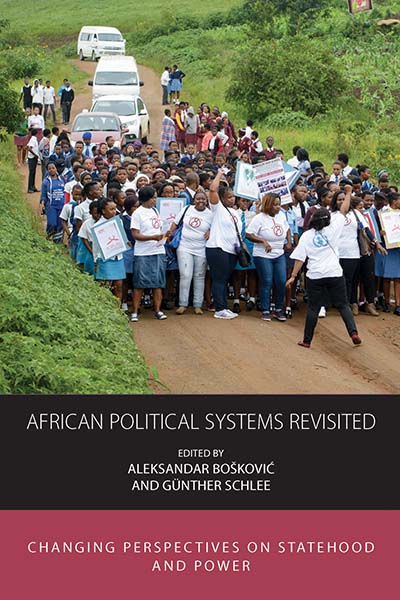“African Political Systems Revisited is a rich collection…that…more than succeeds in obliging us to acknowledge the ongoing empirical and theoretical value of a disciplinary monument without succumbing to either theoretical nostalgia or postcolonial posturing.” • Journal of the Royal Anthropological Institute
“African Political Systems Revisited is ethnographically and theoretically rich, an excellent example of how we can read, discuss with, and profit from a “classic” of anthropology, without uncritically celebrating it or haughtily dismissing its possible contributions for the present. If a similar exercise were made for other ‘classics,’ our relationships with our ancestors would be much more fruitful. The discussion of how different political systems, values and forms of legitimacy interact and are renegotiated is a necessary step toward a better understanding of what ‘freedom,’emancipation,’ ‘resistance,’ and ‘agency’ mean in different African contexts.” • Cahiers d'Études africaines
“African Political Systems Revisited (APSR) offers valuable reconsiderations of some of the key contributions of the original African Political Systems (APS) published by Meyer Fortes and Edward Evan Evans Pritchard in 1940, by way of bridging a central anthropological discussion over a span of 80 years… Altogether, APSR makes an intriguing contribution to the fields of social anthropology, political anthropology, African studies, and political theory and will be a valuable read specifically to students of political anthropology in combination with the original work.” • Anthropos
“The book is a high quality discussion by a group of established and upcoming anthropologists of the impact and value of a classical and foundational text in social anthropology … The result is a strong contribution to social anthropology with new theoretical and comparative insights.” • C.S. van der Waal, Stellenbosch University
Reexamining a classical work of social anthropology, African Political Systems (1940), edited by Fortes and Evans-Pritchard, this book looks at the colonial and academic context from which the work arose, as well as its reception and its subject matter, and looks at how the work can help with analysis of current politics in Africa. This book critically reflects upon the history of anthropology. It also contributes to a political anthropology which is aware of its antecedents, self-reflexive as a discipline, conscious of pitfalls and biases, and able to locate itself in its academic, social and political environment.
Aleksandar Bošković is Senior Research Scientist at the Institute of Archaeology in Belgrade. His books include William Robertson Smith (Berghahn Books, 2021), Mesoamerican Religions and Archaeology (Archaeopress, 2017) and Other People’s Anthropologies (Berghahn Books, 2008, editor).
Günther Schlee is one of the Founding Directors of the Max Planck Institute for Social Anthropology in Halle, Germany. Prior to this appointment he was until 1999 Professor of Social Anthropology at the University of Bielefeld. His main publications include Identities on the Move: Clanship and Pastoralism in Northern Kenya (Manchester University Press, 1989) and How Enemies Are Made: Towards a Theory of Ethnic and Religious Conflict (Berghahn Books, 2008).
LC: GN492 .A37 2022
BISAC: SOC002010 SOCIAL SCIENCE/Anthropology/Cultural & Social; POL053000 POLITICAL SCIENCE/World/African; SOC008010 SOCIAL SCIENCE/Ethnic Studies/African Studies


